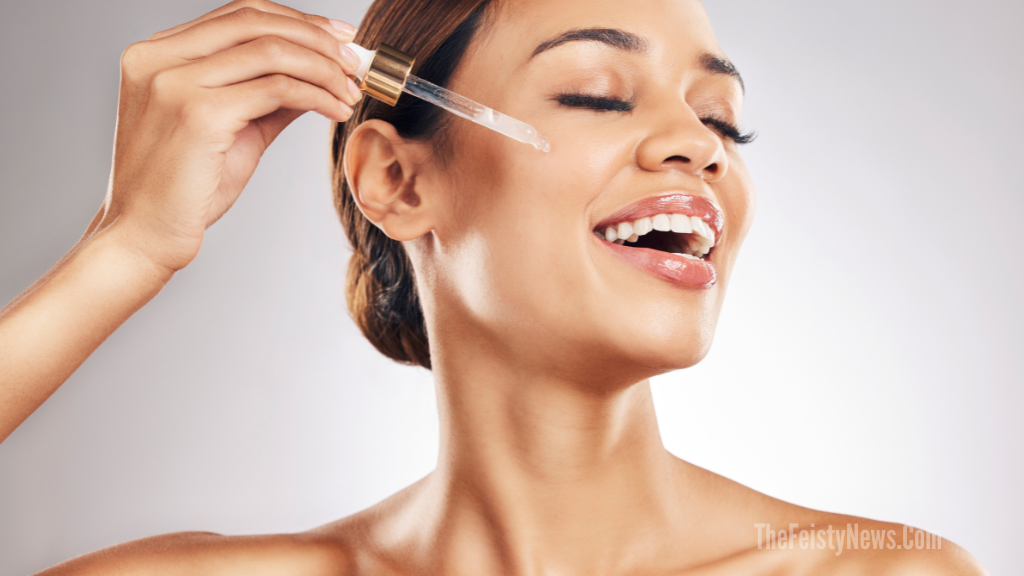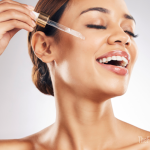In the ever-evolving world of skincare, one term that has garnered significant attention is “medical grade retinol.” Women worldwide are turning to this potent compound for ageless and radiant skin. But what exactly is medical-grade retinol, and why do women use it? Cracking the secrets behind this powerhouse ingredient reveals a world of scientific precision and transformative benefits for women’s health.
What is Medical Grade Retinol?
Medical-grade retinol is a vitamin A derivative renowned for accelerating skin cell turnover and stimulating collagen production.
Retinol stands as a powerful ally in the pursuit of skin rejuvenation. It effectively counteracts the visible signs of aging. Through its remarkable properties, retinol diminishes fine lines and wrinkles, elevates the overall appearance of uneven skin tone, and addresses various skin blemishes.
The secret lies in retinol’s capacity to accelerate the process of skin cell turnover. It contributes to a more vibrant and youthful complexion by removing old skin cells and facilitating the emergence of new ones. The end result is visibly even-toned, brighter, and healthier-looking skin.
In essence, retinol’s mechanism of action involves stimulating collagen production and encouraging the renewal of skin cells. This dynamic process minimizes the appearance of fine lines while contributing to a more refined texture and improved skin tone.
Why do women use medical-grade retinol?
Women turn to medical-grade retinol for various reasons, including:
- Diminishing Signs of Aging: Medical-grade retinol is renowned for its remarkable anti-aging properties. It reduces the appearance of fine lines and wrinkles, promoting smoother and more youthful-looking skin.
- Improving Skin Texture: The exfoliating properties of medical-grade retinol contribute to improved skin texture. By promoting the turnover of skin cells, it reveals fresher, more radiant skin.
- Addressing Hyperpigmentation: Women use medical-grade retinol to tackle hyperpigmentation issues such as dark spots and uneven skin tone. The ingredient fades discoloration, leading to a more even complexion.
- Combating Acne and Blemishes: The exfoliating and pore-cleansing effects of retinol make it perfect for stopping acne and reducing blemishes. It unclogs pores, leading to clearer skin.
- Stimulating Collagen Production: Medical-grade retinol stimulates collagen production, enhancing skin elasticity and firmness. This contributes to a more lifted and toned appearance.
- Overall Skin Rejuvenation: Women use medical-grade retinol for comprehensive skin rejuvenation. It supports the renewal of skin cells, contributing to a refreshed and revitalized complexion.
- Scientifically Proven Results: The appeal of medical grade retinol lies in its rigorous testing and formulation precision. Women trust it for its scientifically backed results and potency compared to over-the-counter alternatives.
- Professional Guidance: Since medical-grade retinol products are often distributed through dermatologists and aestheticians, women appreciate the opportunity to receive professional guidance on the most suitable formulations for their skin types and concerns.
Distinguishing medical-grade retinol from OTC
Understanding the difference between “medical-grade” and over-the-counter (OTC) skincare is crucial. Some people think “medical-grade” means you need a prescription from a doctor, but that’s not always true. OTC skincare, on the other hand, includes products you can buy without a prescription at your local drugstore or beauty store. The tricky part? These OTC products aren’t regulated by the FDA.
Now, let’s talk about medical-grade skincare. It refers to certain OTC products that go through extra testing. These products only use ingredients approved for over-the-counter use. They get approval from clinical studies and stick to FDA rules. You might find these products only at the offices of skin experts, like dermatologists and aestheticians. And guess what? You don’t always need a doctor’s prescription to get them!
Should all women use medical-grade retinol?
The decision to use medical-grade retinol is personal and depends on individual skincare needs, goals, and sensitivities. While medical-grade retinol offers significant benefits for many, it may not be suitable for everyone. Here are some considerations:
- Skin Type and Sensitivity: Not all skin types react the same way to retinol. Those with sensitive skin may experience irritation, redness, or dryness.
- Age and Skincare Goals: While medical-grade retinol is often associated with anti-aging benefits, not every woman may need to incorporate it into their routine, especially at a younger age.
- Consultation with a Dermatologist: Before incorporating medical-grade retinol into your routine, it’s advisable to consult with a dermatologist.
- Pregnancy and Breastfeeding: Pregnant or breastfeeding women should exercise caution with retinol products, including medical-grade formulations. It’s crucial to consult with a healthcare professional to ensure the safety of skincare ingredients during these periods.
How to use medical-grade retinol?
Adding medical-grade retinol to your skincare regimen requires a careful and gradual approach. Begin with a lower concentration and increase the frequency as your skin develops tolerance.
- Start Gradually: To minimize potential irritation, commence with a lower concentration of medical-grade retinol. This allows your skin to acclimate to the product without overwhelming it.
- Build Tolerance: Over time, as your skin becomes accustomed to the retinol, consider increasing the frequency of application. This gradual adjustment prevents sensitivity and ensures a smoother transition into your skincare routine.
- Nighttime Application: Optimal results are often achieved when applying medical-grade retinol at night. The nighttime application enhances the product’s efficacy and allows for better absorption.
- Don’t Forget Sunscreen: It’s imperative to emphasize that consistent sunscreen application during the day is crucial when using medical-grade retinol. This protects the skin from increased sensitivity to the sun, ensuring comprehensive care for your skin health.
Remember, patience and consistency are key when incorporating this powerful ingredient into your skincare routine.
Author Profile
Latest Entries
 SportsNovember 19, 2023Stylish Female Basketball Coaches Making a Statement On and Off the Court
SportsNovember 19, 2023Stylish Female Basketball Coaches Making a Statement On and Off the Court LifestyleNovember 19, 2023Wearable technology is changing the way we engage with the world
LifestyleNovember 19, 2023Wearable technology is changing the way we engage with the world PoliticsNovember 17, 2023Women Leading Nations: Every Female President in the World
PoliticsNovember 17, 2023Women Leading Nations: Every Female President in the World HealthNovember 17, 2023What is Medical Grade Retinol & Why Do Women Use it?
HealthNovember 17, 2023What is Medical Grade Retinol & Why Do Women Use it?






